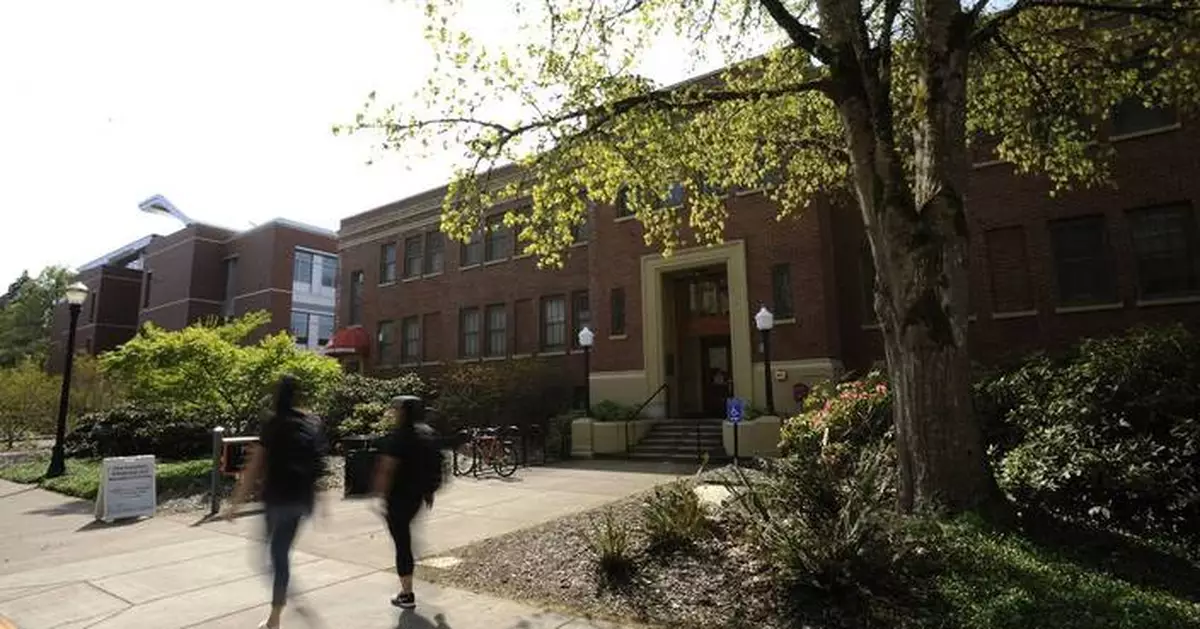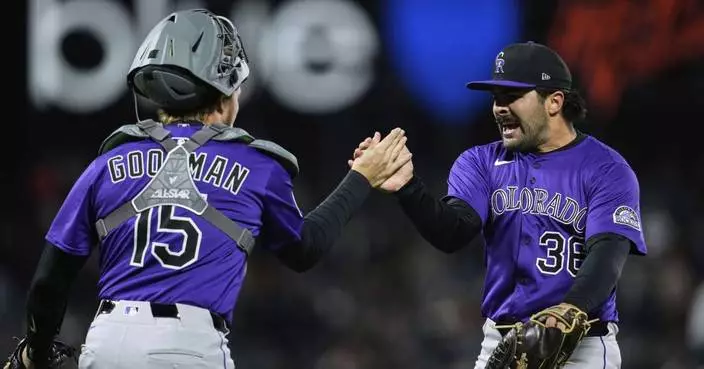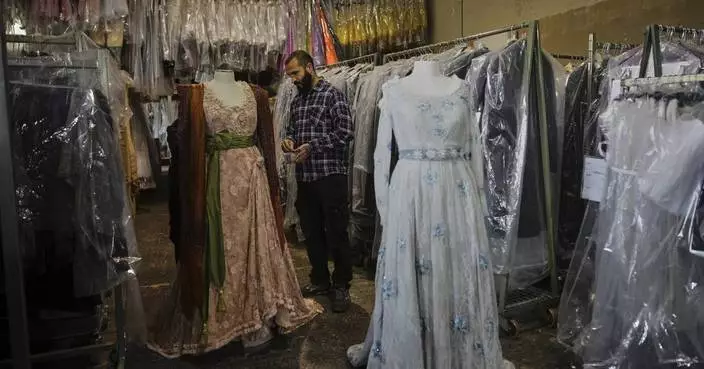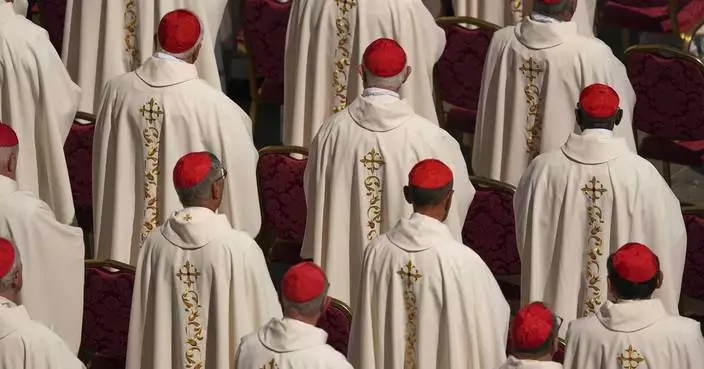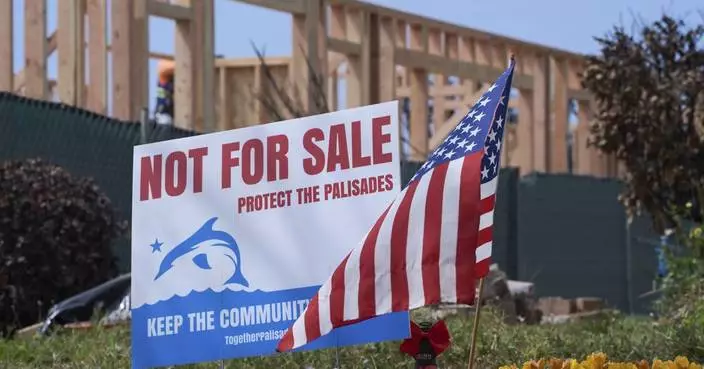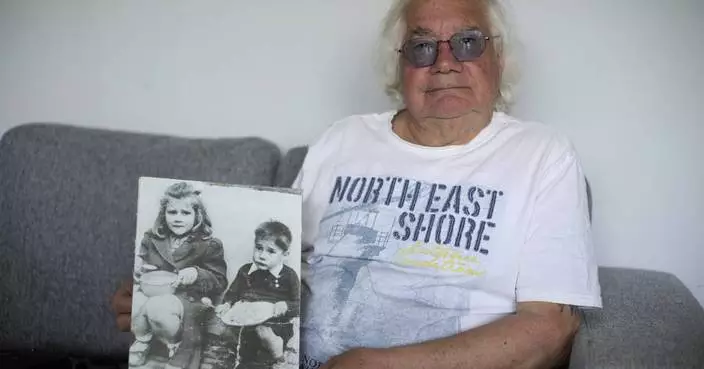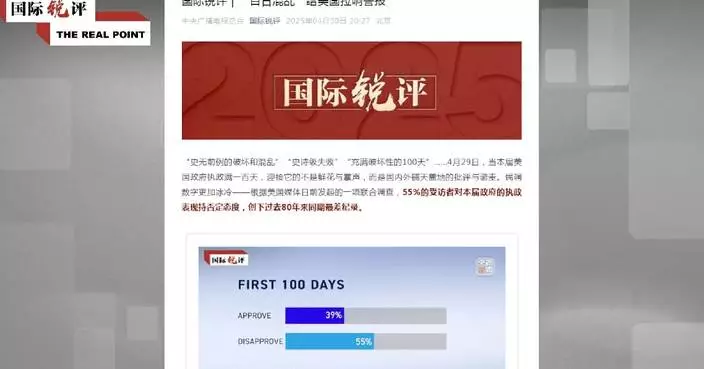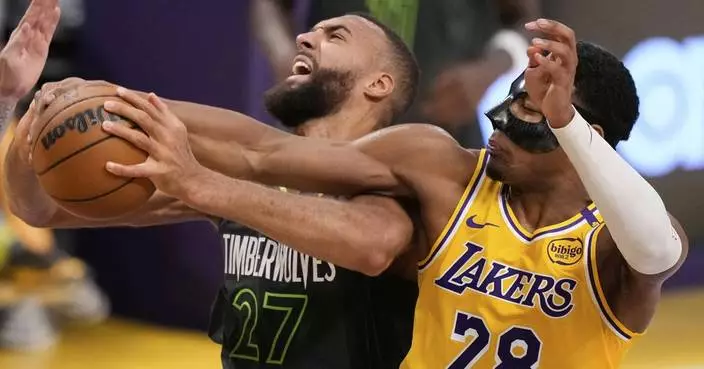EUGENE, Ore. (AP) — A federal judge in Oregon on Monday ordered the U.S. government to restore the visa status of two international students and temporarily blocked their deportation from the country.
U.S. District Judge Michael McShane's 14-day temporary restraining order came in response to lawsuits filed by a student at Oregon State University and another at the University of Oregon following the termination of their visas earlier this month.
At a hearing in federal court in Eugene on Monday, McShane questioned federal lawyers on which regulations they were following when terminating the students' legal status, The Oregonian/OregonLive reported.
“There has to be some regulations for when it’s appropriate and not appropriate. What regulation is ICE following here?” McShane asked, referring to U.S. Immigration and Customs Enforcement.
Assistant U.S. Attorney Patrick J. Conti, representing the federal Department of Homeland Security, said it hadn’t had enough time to gather all the information and argued that the students didn't face irreparable harm, as a final agency decision had not been issued that they could challenge administratively, the Oregonian/OregonLive reported.
The American Civil Liberties Union of Oregon and an immigration law firm filed both lawsuits against the Trump administration, arguing the students' visas were terminated “without any notice or meaningful explanation" to the students or their universities.
The suits were filed on behalf of Aaron Ortega Gonzalez, a 32-year-old citizen of Mexico pursuing a doctoral degree in rangeland ecology at Oregon State University, and a 29-year-old British graduate student only identified as Jane Doe who is pursuing two masters degrees at the University of Oregon.
At schools around the country, more than 1,000 students have seen their visas revoked or their legal status terminated, typically with little notice.
Students have filed lawsuits in several states, arguing they were denied due process. Federal judges have granted temporary restraining orders in Georgia, New Hampshire, Wisconsin, Montana and Washington state, shielding students for now from efforts to remove them from the U.S.
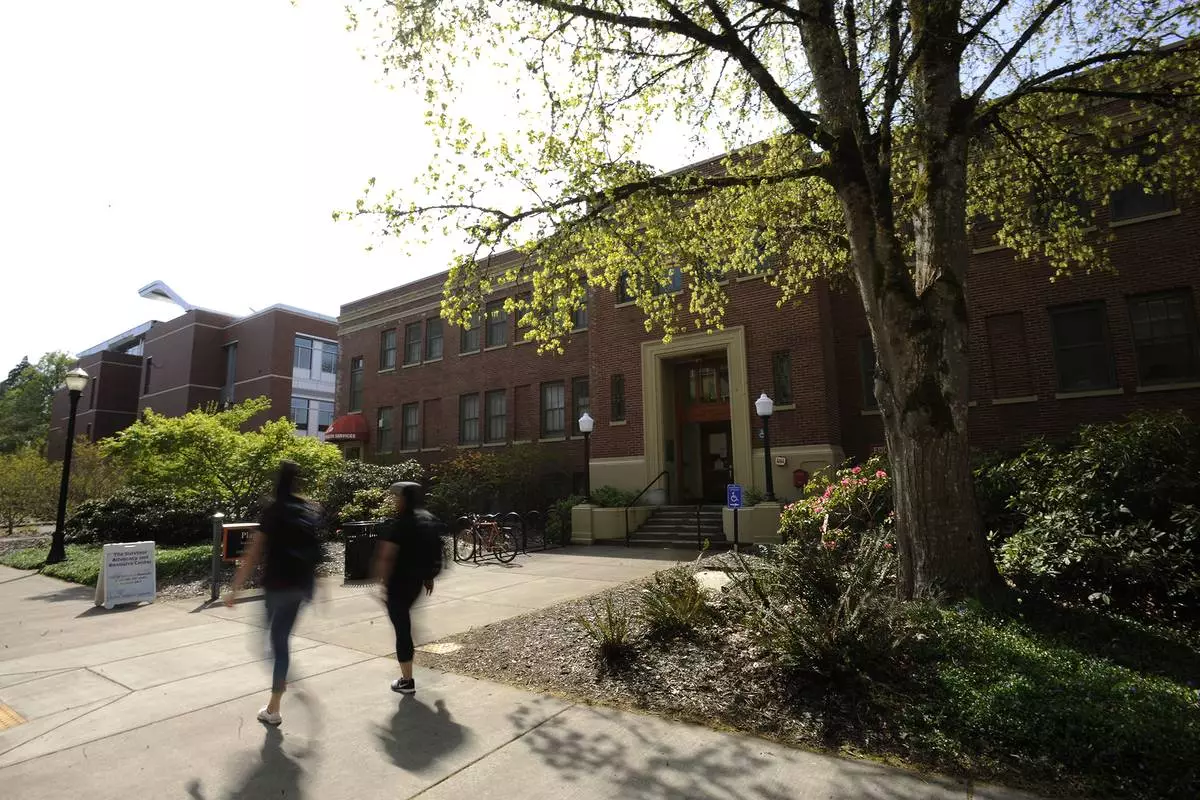
FILE - Oregon State University students walk past the Student Health Services building in Corvallis, Ore., in April 2016. (Anibal Ortiz/The Corvallis Gazette-Times via AP)
SEOUL, South Korea (AP) — South Korea’s former Prime Minister Han Duck-soo said Friday he will run in next month’s presidential election and would seek to lessen the powers of the office and ease strife-ridden domestic politics if he wins.
Han’s entry heats up the scramble among conservatives to unify behind a candidate to compete with liberal front-runner Lee Jae-myung, whose campaign recently was set back by a court decision to open a new trial on election law violation charges.
“I’ve determined to find what I can do for the future of the Republic of Korea that I love and for all of us. I’ll try my utmost to be chosen by the people at this presidential election," Han told a press conference at the National Assembly.
South Korea is holding an early presidential election on June 3 after conservative President Yoon Suk Yeol was ousted over his imposition of martial law. Han was appointed prime minister, the No. 2 post, by Yoon, and he served as acting leader after Yoon was suspended and later removed from office.
Han also was prime minister under liberal President Roh Moo-hyun from 2007 to 2008 and has served as trade minister, finance minister and ambassador to the U.S. during his 40-year career in public service. He has never held elected office but has risen politically as the main conservative People Power Party struggles in the wake of Yoon’s ouster.
Han does not belong to a political party, but contenders in the PPP have said they are willing to field a single candidate among them and Han. PPP members are scheduled to nominate their party's candidate Saturday.
Han said that if elected, he would launch a body to amend the constitution so the president and the assembly share powers based on the principle of checks and balances. His revisions would also bar the political circle and the judiciary branch from meddling in each other's sectors.
In South Korea, executive power is heavily concentrated on a president, and there have been calls for change.
The election June 3 will give the new president a full, single five-year term. But Han said he would serve three years to finish the constitutional revision and then leave.
Han said he would also use his expertise on economic affairs to resolve trade issues with the U.S. over President Donald Trump's tariff policies.
Lee's main liberal opposition Democratic Party stepped up its offensive against Han, saying he is abandoning his duties as the government's caretaker and lacks the moral standing to run for the presidency as a No. 2 official in the Yoon administration, responsible for many policy failures.
“We warn to former Prime Minister Han. Don't hide your greed with a lie that you are running for the people,” party spokesperson Noh Jongmyun said.
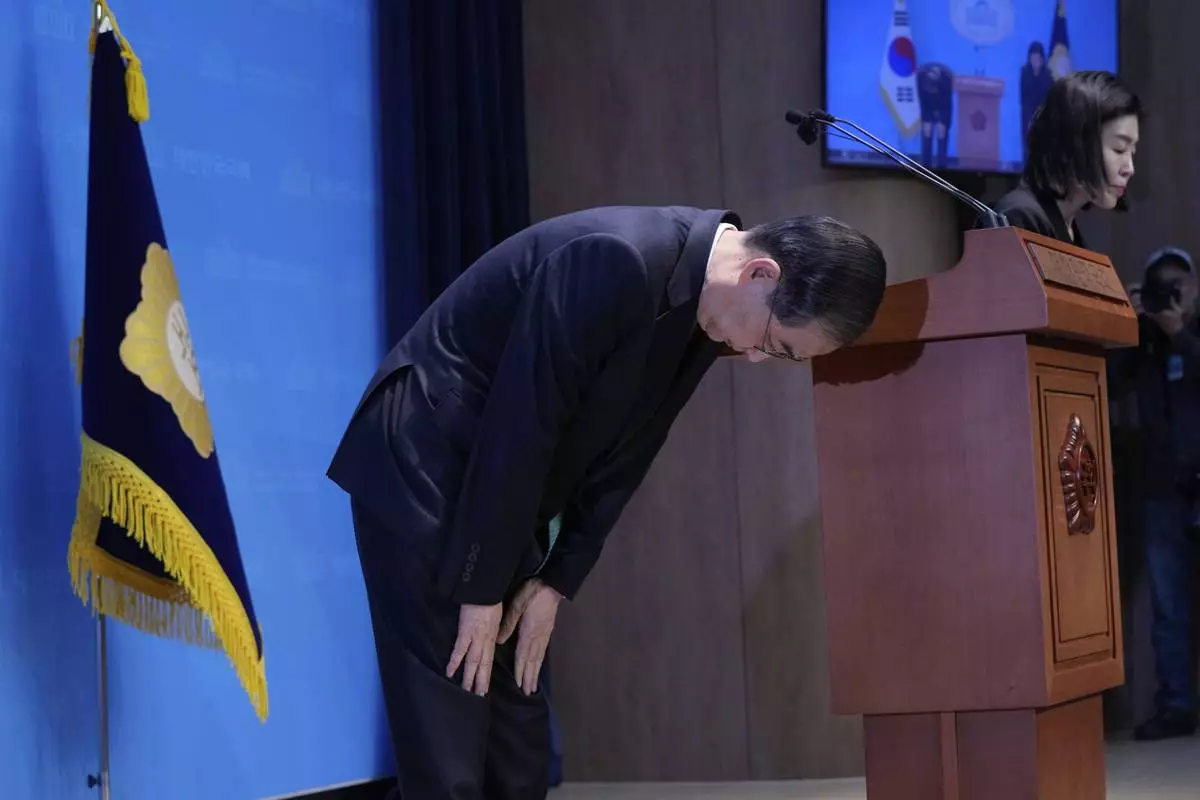
South Korean former Prime Minister Han Duck-soo bows after a press conference to announce a presidential bid at the National Assembly in Seoul, South Korea, Friday, May 2, 2025. (AP Photo/Ahn Young-joon)
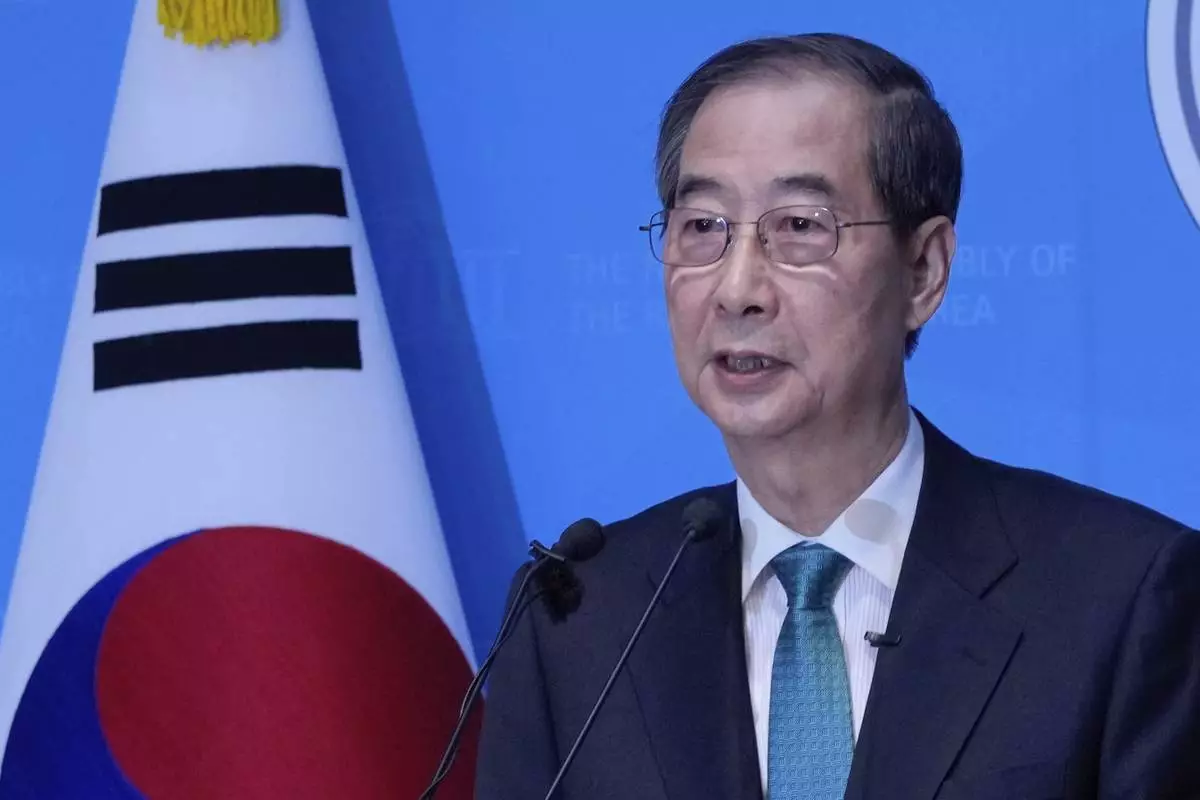
South Korean former Prime Minister Han Duck-soo speaks during a press conference to announce a presidential bid at the National Assembly in Seoul, South Korea, Friday, May 2, 2025. (AP Photo/Ahn Young-joon)
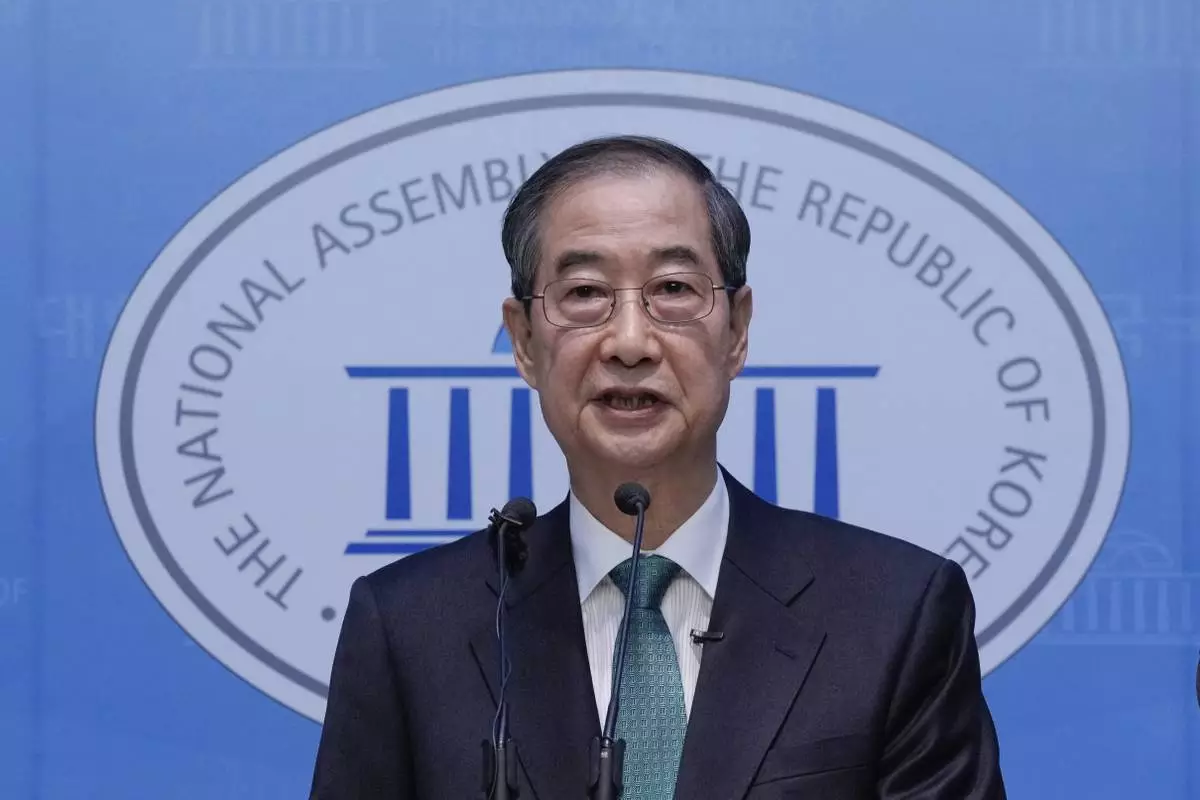
South Korean former Prime Minister Han Duck-soo speaks during a press conference to announce a presidential bid at the National Assembly in Seoul, South Korea, Friday, May 2, 2025. (AP Photo/Ahn Young-joon)
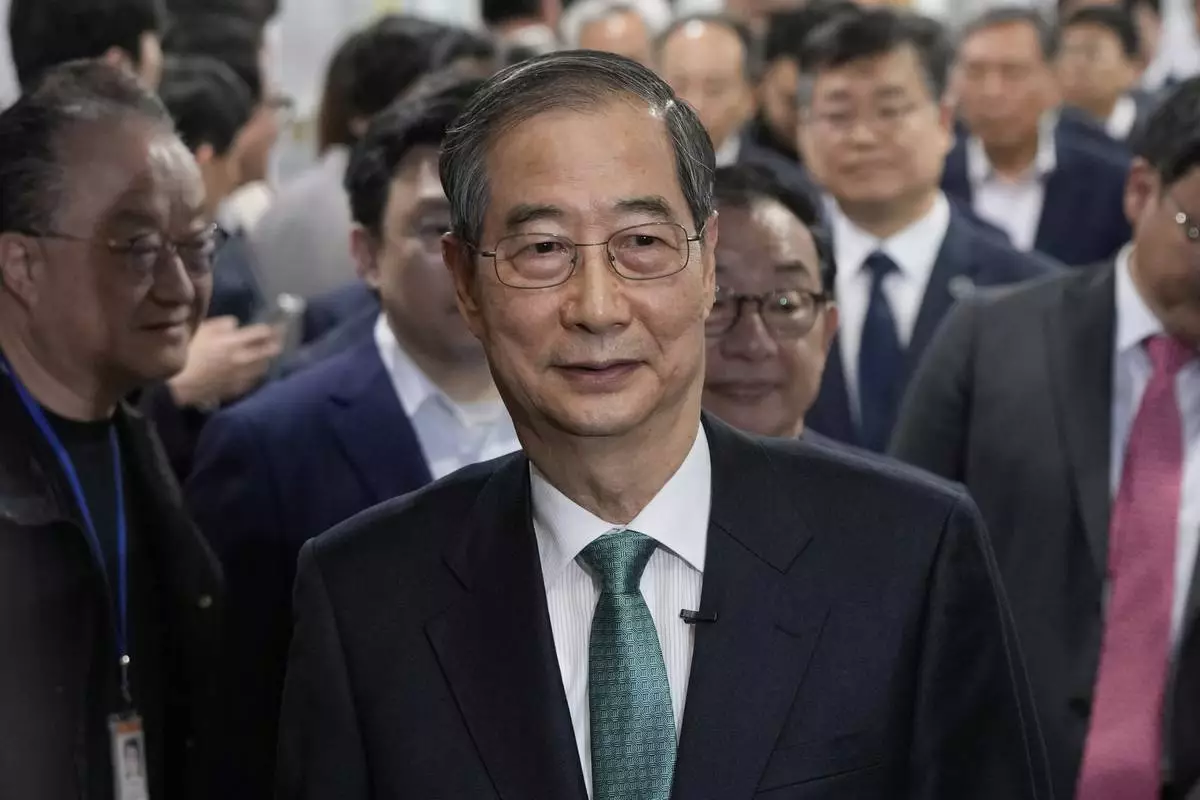
South Korean former Prime Minister Han Duck-soo arrives to hold a press conference to announce a presidential bid at the National Assembly in Seoul, South Korea, Friday, May 2, 2025. (AP Photo/Ahn Young-joon)



